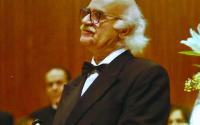25 November 2008
Barack Obama decided to please Wall Street instead of deliver on his promise of change.
He could have picked someone like Joseph Stiglitz to head the Treasury and the National Economic Council. Both have been critics of corporate globalization. Both are strong proponents of reregulating financial institutions and reflating the economy.
Instead, Obama crushed the hopes of progressives by choosing Lawrence Summers to head the council and Timothy Geithner to be Treasury Secretary.
Both are experienced at ramming free market policies down the throats of other nations.
Both were disciples of Robert Rubin when he began to deregulate the financial industry as Clinton's Treasury Secretary in the late 1990s.
Summers served as chief economist at the World Bank from 1991-1993, when it was foisting structural adjustment policies on developing nations. He ousted Stiglitz from the World Bank when the Nobel Prize-winner criticized such policies.
Let's be clear: Summers is a free market ideologue. "Spread the truth—the laws of economics are like the laws of engineering," he said while at the World Bank. "One set of laws works everywhere." You can find this quote in Naomi Klein's "Shock Doctrine," a must-read. She points out how Summers ran roughshod over Russia's parliament to impose economic shock therapy there in 1993, when he had moved over to Treasury.
"The momentum for Russian reform must be reinvigorated and intensified," Summers said, after the parliament had refused to go along. Shortly after that comment, the IMF threatened to withhold a $1.5 billion loan. So Boris Yeltsin dissolved parliament, abolished the constitution, and bowed to the IMF's and Summers's demands. Summers kept the heat on, demanding that "privatization, stabilization, and liberalization" must all be completed post-haste, Klein reports.
The results were catastrophic. "Russia's 'economic reforms' can claim credit for the impoverishment of 72 million people in only eight years," Klein writes.
As Rubin's deputy, Summers also helped knocked down Glass-Steagall, the wall erected in the New Deal to keep commercial banks and investment houses separate.
Then as Treasury Secretary, Summers approved the deregulation of the financial industry even further. He and Clinton signed off on the Commodity Futures Modernization Act that removed oversight from the credit default swaps and derivatives trading that have so imperiled our economy.
Summers was Rubin's disciple. And Timothy Geithner is Summers's disciple.
Geithner got his start working for Kissinger and Associates, which should be a disqualification in and of itself. So, too, should be working for the IMF for Bush Jr. from 2001 to 2003.
In between, Geithner worked in the Treasury Department under Bush I and Clinton, focusing on international economic affairs. In the late 1990s, he was responsible for overseeing the Asian crisis.
As Klein notes, the Treasury Department "was in no rush to stop the pain." In fact, it used the crisis in Indonesia, South Korea, and Thailand to force them to abandon policies aimed at self-sufficiency and to impose policies that would open those economies to U.S. corporations and banks. Never mind that the dictates of the Treasury Department and IMF inflicted enormous pain. "In South Korea, 300,000 workers were fired every month," Klein writes. "In 1996, 63.7 percent of South Koreans identified as middle class; by 1999 that number was down to 38.4 percent."
Since 2003, Geithner has been president of the Federal Reserve Bank of New York. As such, he's been intimately involved in the Wall Street bailouts. He testified to Congress in March that he couldn't explain what precipitated the financial instability we're in right now.
"What produced this is a very complicated mix of factors," he said. "I don't think anybody understands it yet."
At best, that's a cop-out.
Maybe he should have just taken the Fifth.






